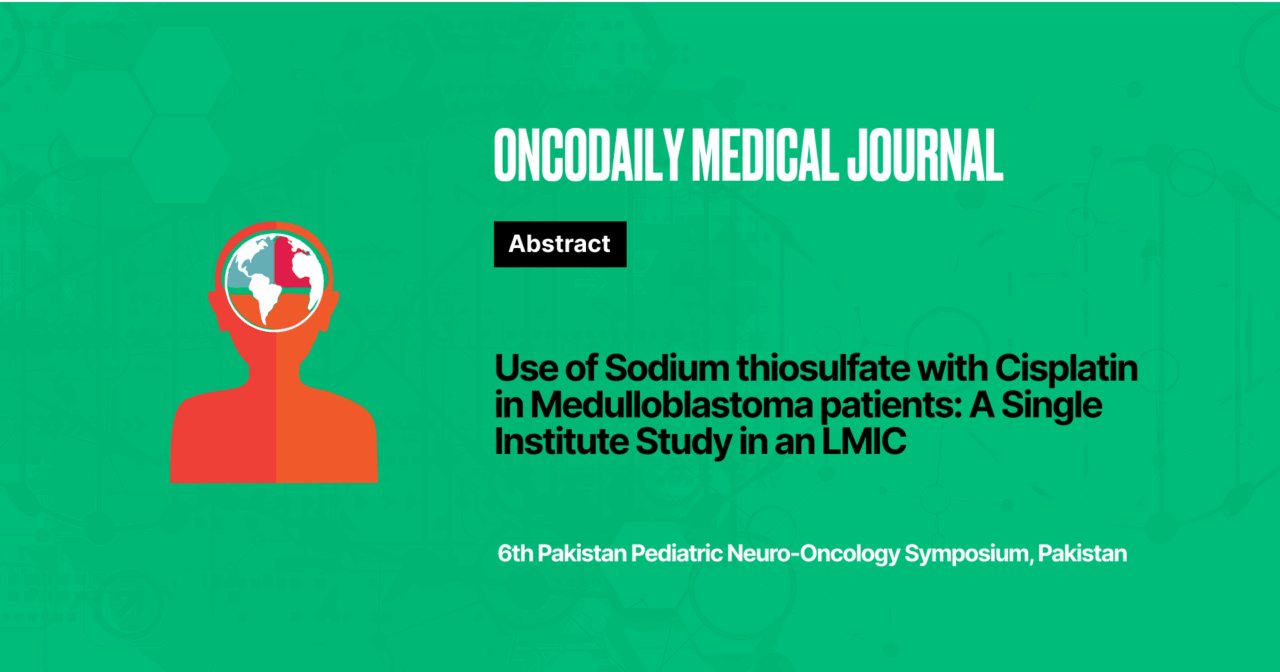Use of Sodium thiosulfate with Cisplatin in Medulloblastoma patients: A Single Institute Study in an LMIC
Abstract
Introduction: Medulloblastoma (MB) is the most common malignant tumor in Pediatric age group. Multimodal treatment carries significant risk of treatment associated morbidity. Current literature highlights that Cisplatin poses a high risk of sensorineural hearing loss. Sodium Thiosulfate (STS) has been explored as an intervention to combat the effects of Cisplatin due to its otoprotective properties. There is limited data available for the use of sodium thiosulphate in brain tumors from developed world and essentially no data from LMIC.
Methodology: A retrospective study was conducted at the Aga Khan University Hospital between July 2014 till July 2024. Patients between the ages of 0 -18 years diagnosed with medulloblastoma who got cisplatin at AKU were included. STATA version 17.0 was used for statistical analysis. In our cohort there were a total of 74 people out of which 29 patients were included in our study because they were diagnosed with Medulloblastoma and got Cisplatin at AKUH.
Results: In our setting, the 29 patients were divided into two groups, those who received STS (44.83%) and those who did not (55.17%). 24 (82.76%) patients were male and 5 (17.24%) were female. Median age was 10. Majority of the patients presented with headache (86.21%), vomiting (86.21%). All patients had surgery: 19 (65.52%) had gross total resection and 10 (34.48%) had subtotal resection. Twenty two patients (75.86%) had classic medulloblastoma, whereas 7 (24.14%) were Desmoplastic. Molecular subgrouping was done in 28 patients. All patients in our cohort received cisplatin at AKUH. Of these, only 13 (44.83%) people had hearing assessment done after chemotherapy with Cisplatin. Out of these 13, 5 (38.46%) received STS and 8 (61.54%) did not receive STS. Out of the group which received STS, only 1 out of 5 people (20%) presented with mild hearing loss as compared to 4 out of 8 people in the non-STS group (50%) who presented with hearing loss, 75% of which had moderate hearing loss. This shows that STS does reduce the amount of hearing loss.
Conclusion: This cohort is the first of its kind to report the use of STS as an otoprotective agent with use of cisplatin. Although we did not find any significant association of STS otoprotective nature, it was highly influenced by a small number of patients. This study is a benchmark for LMIC to explore further effects of STS on the Pakistani demographic.
Conflict of Interest: None
Funding: None
Disclosure Statement: None
License: This article is published under the terms of the Creative Commons Attribution 4.0 International License (CC BY 4.0).
© Farrah Bashir, 2025. This license permits unrestricted use, distribution, and reproduction in any medium, provided the original author and source are credited.





